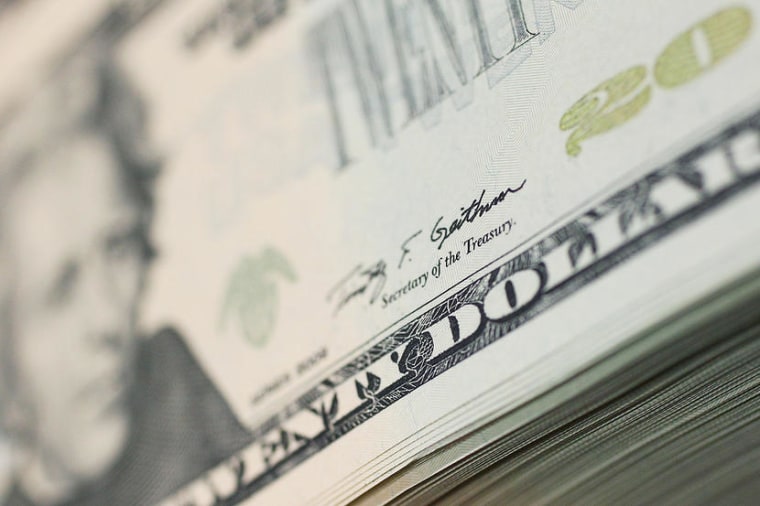As the coronavirus outbreak intensifies, and the prospects for an economic downturn grow, federal policymakers are already weighing possible countermeasures in the hopes of preventing a recession. The House Democratic majority, for example, is reportedly working on a package that will include paid sick leave for Americans who self-quarantine and enhanced unemployment insurance for those whose jobs are affected by the public-health crisis.
We don't yet know whether such measures will gain Republican backing, but as of yesterday afternoon, the White House appeared to have a different approach in mind.
President Donald Trump said Monday that he is looking at a possible payroll tax cut, along with other measures, to help American workers and boost the economy, which has been hit hard by the coronavirus outbreak. He said he'd announce the "dramatic" details of the proposed relief Tuesday. "They will be major," Trump said at a briefing on coronavirus response with members of the coronavirus task force.
According to the official transcript, Trump specifically told the public, "We are going to be asking tomorrow -- we're seeing the Senate. We're going to be meeting with House Republicans -- Mitch McConnell, everybody -- and discussing a possible payroll tax cut or relief, substantial relief -- very substantial relief. That's a big -- that's a big number."
I'm not altogether sure what that meant, though the president seemed to suggest that he now supports a payroll tax break. If the idea sounds familiar, it's because the proposal has been in the mix for months.
As recently as August, when there were concerns about the economy slowing, the president told reporters, "I've been thinking about payroll taxes for a long time." (Less than a day earlier, a White House official said, "[C]utting payroll taxes is not something under consideration at this time.")
Now that fears of a recession are even more acute, Team Trump is apparently far more serious about moving forward with a payroll tax holiday. Given the circumstances, it's probably worth answering an obvious question: what's the payroll tax?
Under existing law, 6.2% of American workers' paychecks are deducted to help fund the Social Security system. When there's a payroll tax holiday -- as there was during Barack Obama's first term as president -- that number is reduced, temporarily, as a way to put some extra money in every paycheck. The government makes up the difference, paying into the Social Security fund so benefits remain unaffected.
As a form of economic stimulus, it's not perfect, but it's generally seen as a decent idea that works quickly. There are also some downsides, though: as The Atlantic's Annie Lowrey explained, a temporary payroll tax break tends to be small, insufficiently targeted, and largely meaningless to those who've lost their jobs and are no longer receiving paychecks.
What's more, as the Obama administration discovered nearly a decade ago, many Americans don't necessarily notice the small increases in their paychecks, so they don't feel like they have a little extra money in their pockets to spend.
With this in mind, several congressional Democrats yesterday expressed skepticism about the White House's pitch -- which, ironically, brings them in line with prominent members of Team Trump, who were similarly skeptical about the same idea in 2011.
What's more, let's also not forget that when the Obama White House wanted a payroll tax break, many congressional Republicans said the cost had to be offset by cuts elsewhere in the budget. It was, as best as I can tell, the only time in recent memory in which GOP lawmakers said tax cuts add to the deficit and needed to be paid for.
I have a strong hunch Republicans will have no similar concerns in 2020.
